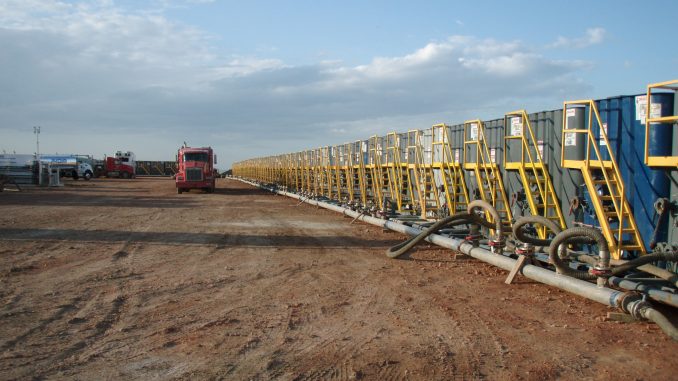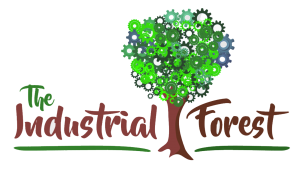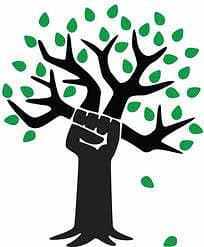
With the increased pressures of global warming, the need for oil and gas companies to more transparent and public about their reductions of environmental waste has become more important than ever. One of the most effective ways oil and gas companies can reduce their carbon footprint is to use water recycling companies that save money and reduce environmental waste.
They do exist.
This article will discuss the various ways oil and gas companies are using water recycling companies to save money and decrease the amount of environmental waste created.
What is Water Recycling?
Water recycling is a process of reusing water that has already been used in order to reduce the amount of water used and decrease the amount of water that would otherwise be wasted.
Water recycling can be used to reclaim wastewater from industrial processes, including oil and gas operations.
This wastewater is treated and reused for other applications, including irrigation and cooling systems. By reusing wastewater, oil and gas companies can reduce their water consumption and save money on water bills.
Benefits of Recycling Water
Water recycling has numerous benefits for oil and gas companies. Firstly, it reduces the amount of fresh water that needs to be used in operations, thus reducing the amount of water that would otherwise be wasted. Additionally, recycling water can reduce the amount of wastewater that is produced, thus reducing the amount of environmental waste created.
Furthermore, recycled water can be used for numerous applications, such as irrigation and cooling systems, thus reducing the amount of energy required to produce fresh water.
Finally, water recycling can help save money, as it reduces the amount of water that needs to be purchased from local water utilities.
How Are Oil and Gas Companies Using Water Recycling?
Oil and gas companies are using water recycling for a variety of applications. One of the most common applications is hydraulic fracturing, also known as “fracking”.
Fracking is a process used to extract oil and gas from underground deposits. During the process, large amounts of water are needed to break up the rock formations and create pathways for the oil and gas to flow through.
By recycling the wastewater produced during fracking, oil and gas companies can reduce their water consumption and save money on water bills.
Another application of water recycling in the oil and gas industry is in cooling systems. In many oil and gas operations, water is used to cool systems and equipment in order to reduce the risk of overheating and potential damage.
By recycling the water used in cooling systems, oil and gas companies can reduce their water consumption and save money on water bills.
Finally, water recycling can be used to reduce the amount of wastewater produced in oil and gas operations. Wastewater produced in oil and gas operations can contain toxic chemicals, such as benzene, toluene, ethylbenzene, and xylene.
By recycling the wastewater, oil and gas companies can reduce the amount of wastewater produced and reduce the amount of toxic chemicals released into the environment.
Conclusion
Water recycling is an effective way for oil and gas companies to reduce their environmental waste and save money.
By recycling the water used in hydraulic fracturing, cooling systems, and wastewater treatment, oil and gas companies can reduce their water consumption and save money on water bills.
Additionally, by recycling wastewater, oil and gas companies can reduce the amount of toxic chemicals released into the environment.
Overall, water recycling is an effective way for oil and gas companies to reduce their environmental waste and save money. By utilizing water recycling, oil and gas companies can reduce their carbon footprint and help protect the environment.
Submit your Article Ideas to The Crude Life! Email studio@thecrudelife.com
About The Crude Life
Award winning interviewer and broadcast journalist Jason Spiess and Content Correspondents engage with the industry’s best thinkers, writers, politicians, business leaders, scientists, entertainers, community leaders, cafe owners and other newsmakers in one-on-one interviews and round table discussions.
The Crude Life has been broadcasting on radio stations since 2012 and posts all updates and interviews on The Crude Life Social Media Network.
Everyday your story is being told by someone. Who is telling your story? Who are you telling your story to?
#thecrudelife promotes a culture of inclusion and respect through interviews, content creation, live events and partnerships that educate, enrich, and empower people to create a positive social environment for all, regardless of age, race, religion, sexual orientation, or physical or intellectual ability.
Sponsors, Music and Other Show Notes

Studio Sponsor: The Industrial Forest
The Industrial Forest is a network of environmentally minded and socially conscious businesses that are using industrial innovations to build a network of sustainable forests across the United States.
Weekly Sponsor: Stephen Heins, The Practical Environmentalist
Historically, Heins has been a writer on subjects ranging from broadband and the US electricity grid, to environmental, energy and regulatory topics.
Heins is also a vocal advocate of the Internet of Everything, free trade, and global issues affecting the third of our planet that still lives in abject poverty.
Heins is troubled by the Carbon Tax, Cap & Trade, Carbon Offsets and Carbon Credits, because he questions their efficacy in solving the climate problem, are too gamable by rent seekers, and are fraught with unreliable accounting.
Heins worries that climate and other environmental reporting in the US and Europe has become too politicized, ignores the essential role carbon-based energy continues to play in the lives of billions, demonizes the promise and practicality of Nuclear Energy and cheerleads for renewable energy sources that cannot solve the real world problems of scarcity and poverty.
Look at what’s happened to me.
I can’t believe it myself.
Suddenly I’m down at the bottom of the world.
It should have been somebody else
Believe it or not, I’m walking on air.
I never thought I could feel so free-e-e.
Barterin’ away with some wings at the fair
Who could it be?
Believe it or not it’s just me
The Last American Entrepreneur
Click here of The Last American Entrepreneur’s website

Studio Email and Inbox Sponsor: The Carbon Patch Kids
The Carbon Patch Kids are a Content Story Series targeted for Children of All Ages! In the world of the Carbon Patch Kids , all life matters and has a purpose. Even the bugs, slugs, weeds and voles.
The Carbon Patch Kids love adventures and playing together. This interaction often finds them encountering emotional experiences that can leave them confused, scared or even too excited to think clearly!
Often times, with the help of their companions, the Carbon Patch Kids can reach a solution to their struggle. Sometimes the Carbon Patch Kids have to reach down deep inside and believe in their own special gift in order to grow.
The caretakers of Carbon Patch Kids do their best to plant seeds in each of the Carbon Patch Kids so they can approach life’s problems with a non-aggressive, peaceful and neighborly solution.
Carbon Patch Kids live, work and play in The Industrial Forest.
Click here for The CarbonPatchKids’ website

Featured Music: Alma Cook
Click here for Alma Cook’s music website
Click here for Alma Cook’s day job – Cook Compliance Solutions
For guest, band or show topic requests, email studio@thecrudelife.com
Spread the word. Support the industry. Share the energy.





